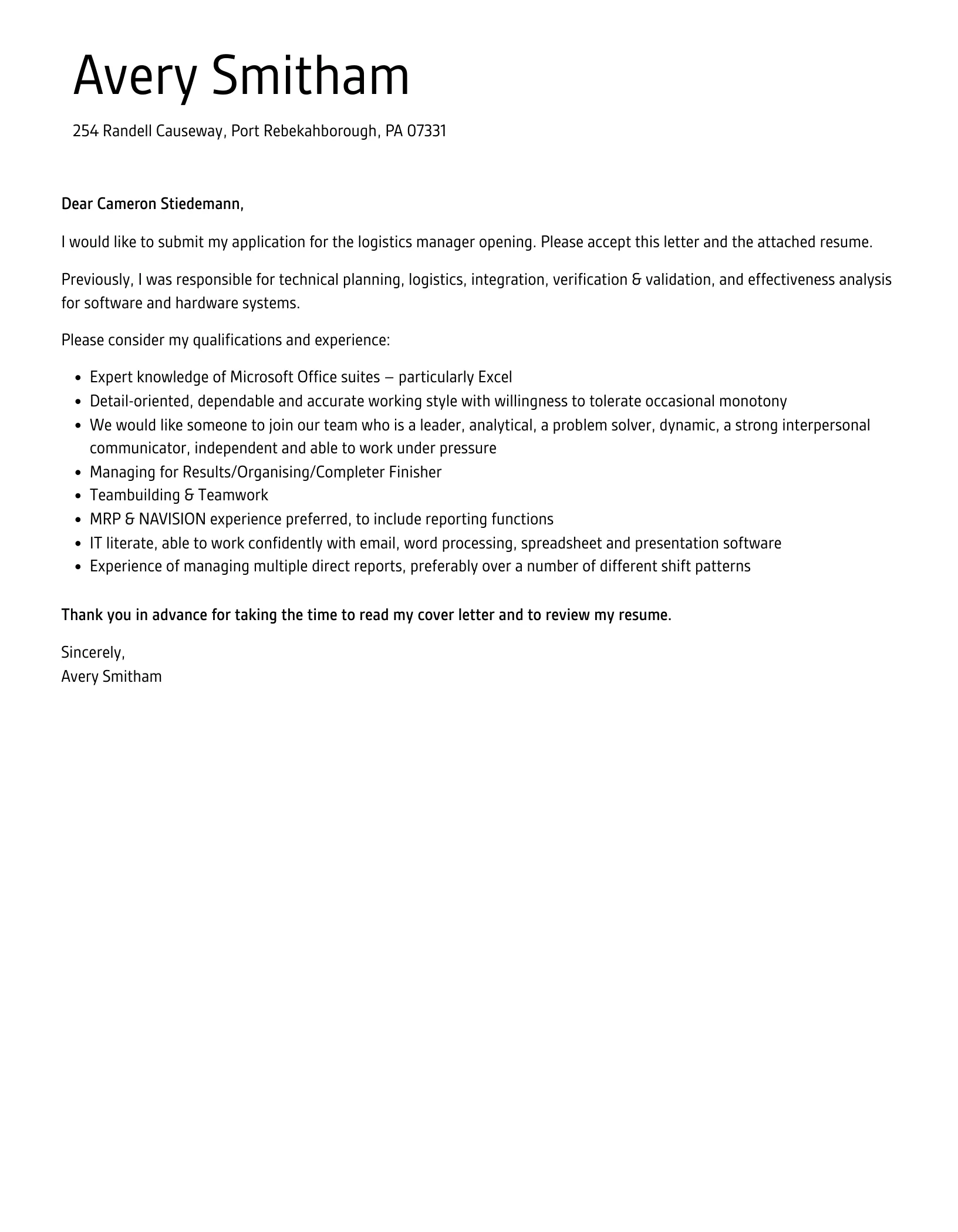Understanding the Importance of a Logistics Cover Letter
A well-crafted logistics cover letter is your first opportunity to make a strong impression on potential employers. It serves as more than just a formality; it’s a crucial tool to showcase your skills, experience, and enthusiasm for the role. This document allows you to highlight your unique value proposition, differentiating you from other candidates. It provides context to your resume, explaining why you are the best fit for the specific job. In the highly competitive logistics industry, a compelling cover letter can significantly increase your chances of getting noticed. It demonstrates your communication skills, your attention to detail, and your understanding of the logistics field. Without a persuasive cover letter, your application might be overlooked, even if your resume is excellent. A well-written letter offers you the space to tell your story, to present your qualifications in a way that a resume alone cannot.
Highlighting Relevant Skills and Experience
When crafting your logistics cover letter, focus on the skills and experiences most pertinent to the position you’re applying for. This is where you connect your qualifications with the exact needs outlined in the job description. Avoid generic statements; provide specific examples that showcase how your skills have delivered success in the past. For instance, instead of claiming you’re good at inventory management, explain how you streamlined a specific process, leading to reduced costs or improved efficiency. By highlighting your achievements and demonstrating how you’ve contributed to prior employers’ success, you’ll capture the hiring manager’s attention. This shows that you have the experience and skills needed to excel in the role. Remember, tailoring your letter to each job application is crucial to address the company’s specific needs and the specific demands of the position.
Key Skills to Showcase
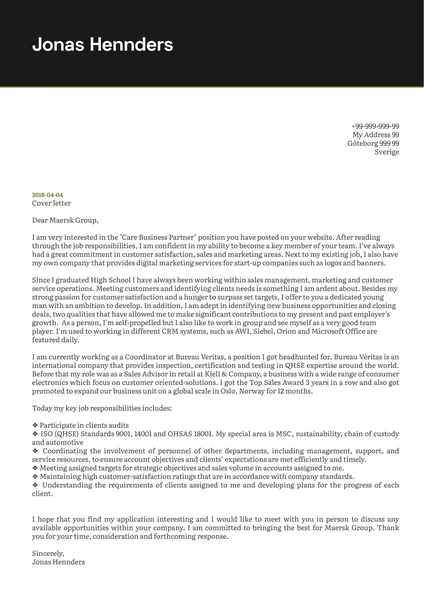
The logistics industry demands a broad skill set, and your cover letter is the ideal place to spotlight the ones most relevant to the job. Emphasize abilities such as supply chain management, inventory control, transportation, and distribution. Strong analytical skills are essential for problem-solving and making sound decisions. Communication skills, both written and verbal, are critical for effective coordination with suppliers, customers, and colleagues. Highlight your proficiency in using logistics software, such as warehouse management systems (WMS) and transportation management systems (TMS). Don’t forget to include soft skills like time management, organizational abilities, and the ability to handle pressure effectively. When providing examples, detail how you’ve applied these skills to achieve tangible results, confirming your capability to handle the job’s responsibilities.
Experience to Emphasize
Your past experience is a key factor for employers to consider when evaluating your application. In your cover letter, highlight the experience most relevant to the logistics job you’re seeking. This might include experience in warehouse operations, freight forwarding, customs brokerage, or any other aspect of logistics. Quantify your achievements whenever possible, using metrics to illustrate your successes. For example, instead of saying you ‘managed inventory,’ state that you ‘reduced inventory costs by 15% through improved tracking and management.’ Mention specific projects or initiatives you’ve been involved in, describing your role and the outcomes achieved. Demonstrate your experience within relevant industries, such as manufacturing, retail, or e-commerce, and explain your understanding of sector-specific challenges and opportunities. Highlighting your experience demonstrates that you are well-prepared for the tasks ahead.
Tailoring Your Cover Letter to the Job
Generic cover letters that are mass-produced do not impress hiring managers. Tailor your cover letter to each specific job application to truly stand out. This shows you’ve taken the time to understand the role and the company, which demonstrates your genuine interest. Carefully examine the job description, identifying the key skills and experiences the employer is seeking. Then, use your cover letter to highlight how your qualifications meet those requirements. Customize the content to align with the company’s values and culture. This includes the language used, the specific examples given, and the overall tone of your letter. This targeted approach increases your chances of getting an interview.
Researching the Company
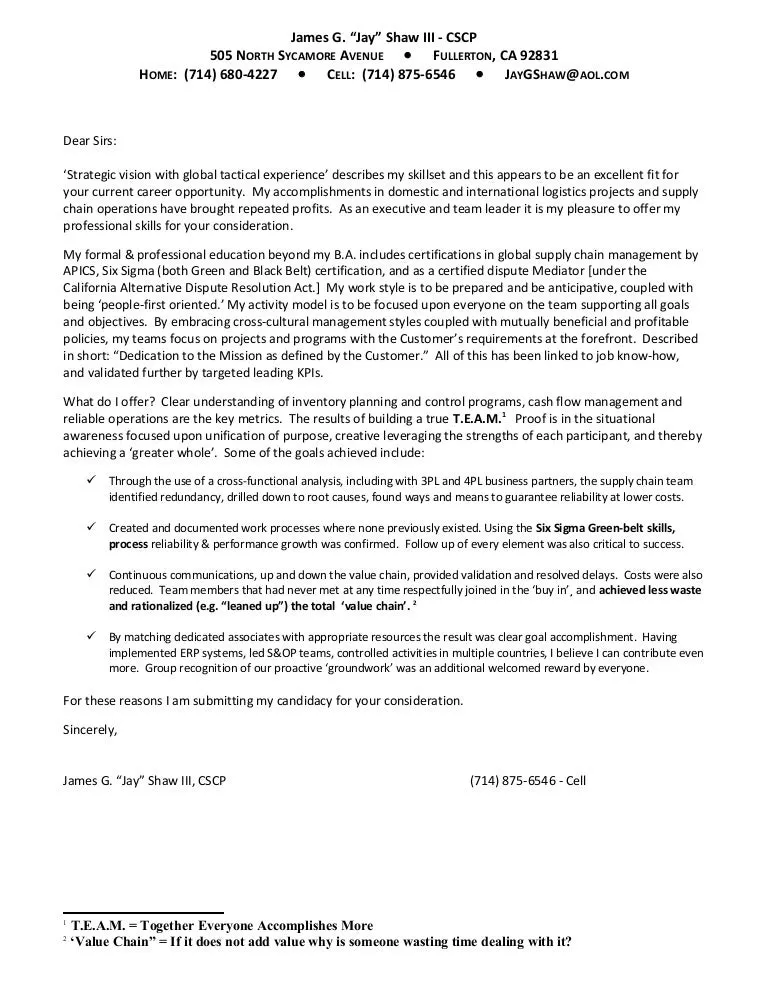
Before starting your cover letter, invest time in researching the company. Visit their website, read news articles, and check their social media profiles. Understanding the company’s mission, values, and recent projects will help you personalize your cover letter, showing that you have a genuine interest in them. Look for any challenges or opportunities they face and explain how your skills and experience can help them reach their goals. Showing you have done your homework and have an understanding of the company’s needs sets your application apart. When possible, personalize your letter by addressing it to the hiring manager by name. This personal touch shows initiative and attention to detail, enhancing your application.
Matching Skills with Job Requirements
Effective cover letters explicitly match your skills with the specific requirements listed in the job description. Go through the job posting line by line, identifying the key qualifications the employer is seeking. Then, in your cover letter, provide clear examples of how your skills and experiences meet each requirement. Use keywords from the job description, which will help your application be found by applicant tracking systems (ATS). For each skill or experience mentioned in the job posting, provide a concise example of how you have used that skill in the past. This might include a specific project, a problem you resolved, or a positive result you achieved. The more detailed your examples, the more compelling your cover letter will be, clearly illustrating your capabilities.
Formatting and Writing Style
The formatting and writing style of your cover letter significantly influence how potential employers perceive you. Keep your cover letter concise, aiming for a single page. Use a professional and readable font like Times New Roman or Arial, with a font size of 11 or 12 points. Use clear headings and bullet points to break up large blocks of text, making it easier for the hiring manager to quickly scan the document. Maintain a professional tone throughout the letter, avoiding slang or overly casual language. Use active voice to make your writing more engaging and dynamic. Your writing must be clear, precise, and free of grammatical errors and typos. Formatting and appearance contribute to creating a positive professional impression.
Effective Opening and Closing Statements
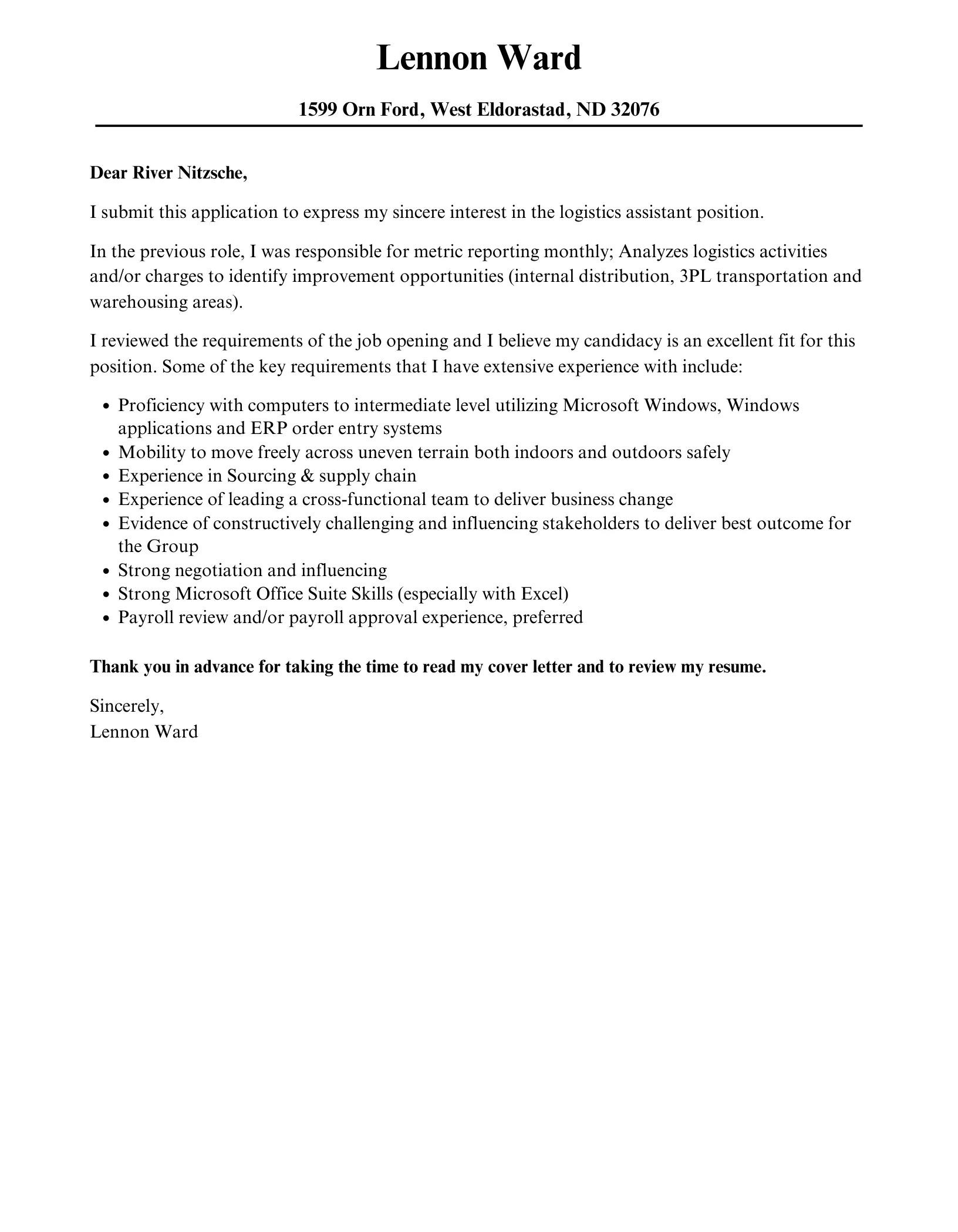
Your opening and closing statements are crucial for grabbing the reader’s attention and leaving a lasting impression. Start with a strong opening that immediately identifies the position you are applying for. Instead of a generic opening such as ‘I am writing to express my interest…’, try something more engaging, such as highlighting a key achievement or expressing your enthusiasm for the company. In your closing statement, restate your interest in the position and express your eagerness to discuss your qualifications further. Thank the reader for their time and consideration and include a call to action, such as requesting an interview. Make sure both opening and closing paragraphs align with your overall message, demonstrating your personality and professionalism.
Proofreading and Editing
Proofreading and editing are essential steps before submitting your cover letter. Errors in grammar, spelling, and punctuation can damage your credibility and make you seem unprofessional. Take the time to carefully review your cover letter multiple times. Reading it aloud can help you catch errors you might miss otherwise. Use a grammar and spell checker, but do not rely on it entirely; it’s not a substitute for thorough proofreading. It is beneficial to have a friend, mentor, or career counselor review your cover letter. A fresh perspective can often identify mistakes you might have missed. Make sure all contact information is correct, as well as the company name. Proofreading your letter demonstrates your attention to detail, a valuable trait in the logistics industry.
Showcasing Your Passion for Logistics
Beyond highlighting your skills and experience, let your passion for logistics shine through in your cover letter. Share what excites you about the industry and what motivates you to succeed. Mention what specifically attracts you to the company or the role you are applying for. Referencing the company’s operations or values that resonate with you demonstrates your genuine interest. Your discussion of your long-term goals in logistics will show that you are committed and enthusiastic. Communicating your passion makes your application more memorable, creating a personal connection with the hiring manager. Your enthusiasm distinguishes you from applicants who might have comparable qualifications.
Quantifying Achievements and Results
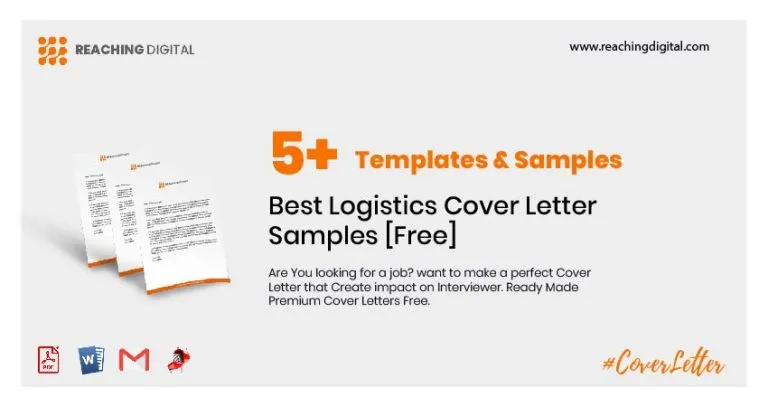
Whenever possible, quantify your accomplishments and the results you achieved in previous positions. Using numbers and data makes your achievements more concrete and more impactful. Instead of stating that you “improved efficiency,” specify that you “increased warehouse throughput by 20%.” Instead of saying that you “managed customer relationships,” describe how you “reduced customer complaints by 15% through improved communication and problem-solving.” Provide clear examples of how you contributed to cost savings, improved efficiency, or increased revenue. Quantifying your accomplishments boosts your credibility and shows the value you bring to the table. The more specific you are with your results, the more effectively you can demonstrate your abilities and create a lasting positive impression on potential employers.
In summary, an effective logistics cover letter is essential for impressing employers and securing your desired role. Understanding its importance, highlighting relevant skills and experience, customizing the letter to the job, demonstrating your passion, and quantifying your achievements will enable you to create a compelling application that sets you apart. Applying the guidelines above will greatly increase your chances of success in the highly competitive logistics industry.
